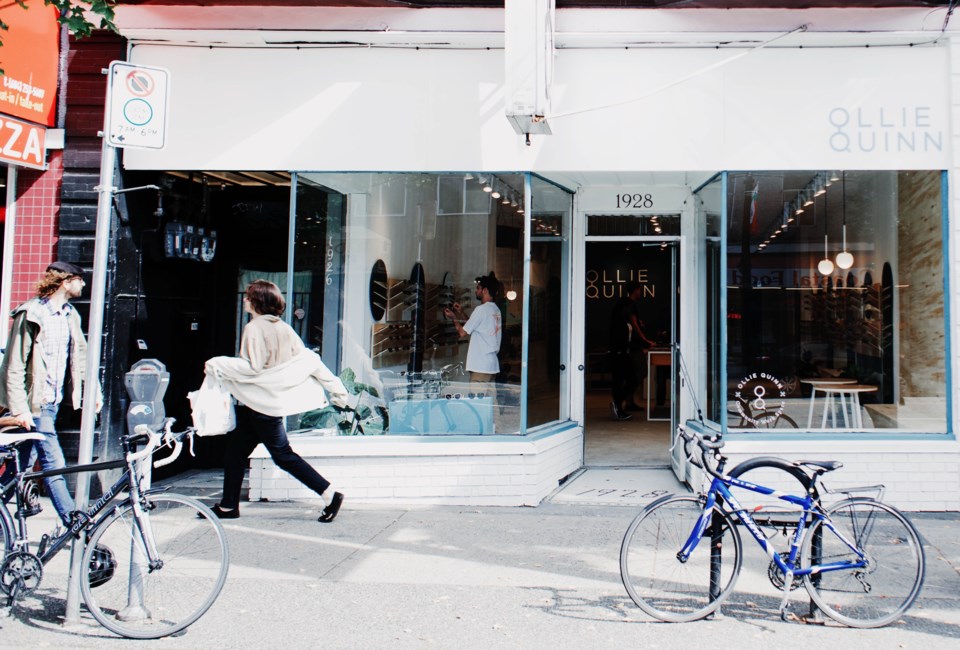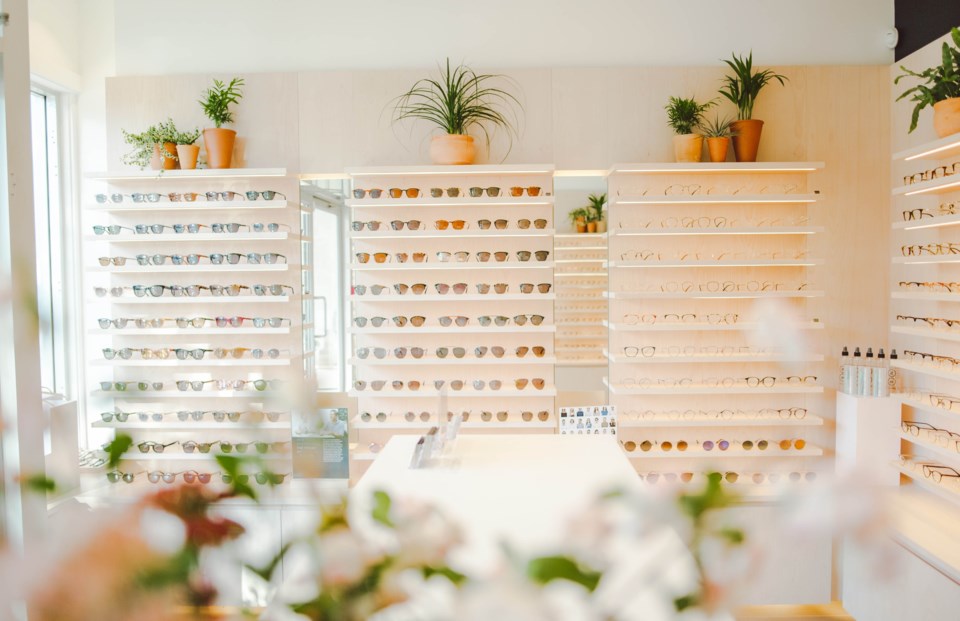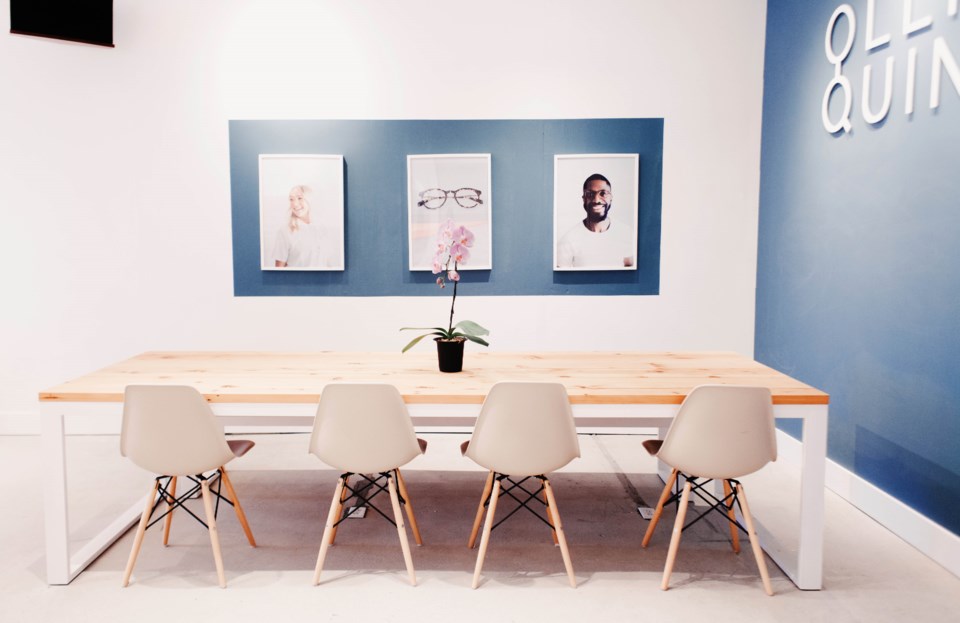Disruption continues to be a key word in business – think Uber vs. taxis, Netflix vs. TV, or Airbnb vs. hotels. But who knew that the staid old world of spectacles was ripe for a shake-up?
U.S. brand Warby Parker worked it out in 2010. Its founders believed that one company (Luxottica) had a monopoly over eyewear because it manufactured virtually every designer brand, from Chanel to Ray-Ban, and owns retailers Sunglass Hut, Lenscrafters, and Pearle Vision. Warby Parker reckoned this meant prices were artificially high, so it decided to get involved by designing affordable specs ($95, including lenses) and selling online direct to customers. On its launch date, the American GQ magazine wrote about the branding, calling it, “the Netflix of eyewear.” Within days, there were more than 20,000 people on the waitlist for frames.
Seven years on, Warby Parker sells millions of pairs of glasses and shades and has 61 brick-and-mortar shops (two in Toronto), as well as its online stores. There are now a number of brands operating the same direct-to-consumer, in-house designed model. Two – British brand Ollie Quinn and Aussie line Bailey Nelson – have recently opened here.
“Monopolies... tend to work out well for the monopolist and not so well for the consumer, particularly in terms of price,” says Michael Andersen, North America CEO of Ollie Quinn, which has opened six stores across Metro Vancouver in the last few months. “We believe – and have experienced firsthand – that there is room for independent players that are driven by the desires of consumers, where the customer’s voice genuinely makes a difference to design, price and operations.”

How does a direct-to-consumer model allow for lower prices and more customer interaction? “It means no licence holders, sales agents or retailers are adding a markup before our frames are with a customer,” explains Ryan Nix, head designer for Bailey Nelson (the Australian company has its North America headquarters in Vancouver). “Our collections can only be found through our own stores, which allows us to react, check and adjust quickly based on what is or isn't working for our customers. We're in a nice position to make quick adjustments and consistently evolve our collections.”
Asking Questions
Change isn’t just coming from larger international brands; it’s happening on a local level. Vancouver-based optometrist Dr. Harbir Sian has just set up Kingsley Eyewear, which specializes in handcrafted frames sold direct to consumers online. It also has a philanthropic element, working with an organization called Optometry Giving Sight to give eye care, glasses and training to people in developing countries. He says that the eyewear monopoly isn’t just on frames. “The other part of glasses that is not often discussed is the lenses. Industry giants like Essilor control huge amounts of market share. Coincidentally, guess which two companies just completed a merger that shook the industry. 10 points if you guess Luxottica and Essilor!” he says.

Dr. Sian believes that change in the eyewear industry is largely driven by the new type of savvy consumer who does their research. “We all ask, ‘Where does this come from?’, ‘Who made it?’, and ‘Why would I buy this over the alternative?’. The old guard would not be interested in answering these questions. This leaves an opportunity for new brands to speak to the consumer on a level that the eyewear industry did not previously care to.”
When industries get disrupted, there are inevitably casualties – regular taxi operators, cable companies, small B&Bs or, in this case, small, local optical businesses. The experts we spoke to say there’s room for everyone and that change will make all businesses stay on their toes. But there are question marks over quality, and then there’s the service element as we move away from friendly family optometrists.
Cost of Convienience
Sara Moshurchak has been in the optical industry for 20 years. Her Gastown-based brand, MOSH Framemakers (formerly Eyeland), specializes in hand-making bespoke frames, and she’s one of only three women in the world who handcrafts frames. “I don’t believe that the industry is damaged, but it has shifted away from service and quality to convenience,” she says. “I’m often wary of companies in any business who aren’t touting how amazing their product and service is, but are instead critiquing others for being too expensive. I believe it’s not so much about price as it is about value. There is a Benjamin Franklin quote,” she adds. “‘The bitterness of poor quality remains long after the sweetness of low price is forgotten.’”
Bailey Nelson‘s Ryan Nix contends that the cost savings come from the simplified supply chain (no middle men). “We are designing original collections, using world-class materials and manufacturing with a small group of amazing factories,” he says. “Our stores deliver a relaxed atmosphere that encourages our customers to have fun and never feel like they are visiting a clinical medical facility.”
Ultimately, Moshurchak believes that increased choice is a good thing. “Choice offers something to everyone’s budget, needs, desires and lifestyle. I love to use buying suits as an example for this,” she says. “There are those who will buy a suit in a general small, medium or large size; those who buy one with more size options, like a 42 regular; and those who want it to look the best it can and will get it custom tailored or made. None of these options is better than the other. It’s about finding the right pair of eyewear for you and how you plan on wearing it.
“There are some people who only see eyewear as a visual aid,” she continues, “and others who see it as fashion and a way to express their creativity and individuality. After all, it’s the first thing people see when they look at you.”



